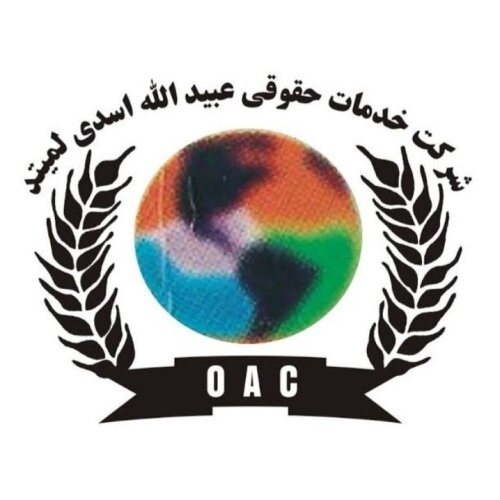Best Private Equity Lawyers in Kabul
Share your needs with us, get contacted by law firms.
Free. Takes 2 min.
List of the best lawyers in Kabul, Afghanistan
About Private Equity Law in Kabul, Afghanistan
Private equity is an important area of business and investment law in Kabul, Afghanistan. Private equity involves investments made by individuals or organizations directly into private companies, or the buyout of public companies that then become private. In Kabul, the private equity sector remains relatively small compared to international centers, but it has grown in recent years due to ongoing economic development and efforts to attract foreign investment. Investors often participate in private equity deals to fund startups, expand businesses, or restructure companies. However, the sector operates within a unique legal and regulatory framework influenced by Afghan law, local business practices, and the current economic climate in Kabul.
Why You May Need a Lawyer
Private equity transactions typically involve substantial amounts of money, complex contracts, and legal liabilities. Without proper legal guidance, individuals and companies can be exposed to risks such as unclear agreements, regulatory penalties, or disputes that may threaten their investments. Common situations where legal help is required include:
- Structuring private equity deals
- Negotiating and drafting investment agreements
- Conducting due diligence before investing
- Navigating regulatory and compliance requirements
- Resolving shareholder disputes
- Handling cross-border investment issues
- Managing exits or divestments from investments
- Protecting intellectual property and proprietary business information
- Understanding tax implications of private equity transactions
Engaging a lawyer with experience in Afghan private equity law can help you to safeguard your interests, comply with local regulations, and maximize the value of your investment.
Local Laws Overview
Private equity activities in Kabul are governed by Afghan national laws, primarily the Commercial Code of Afghanistan, the Law on Limited Liability Companies, and regulations issued by the Afghanistan Investment Support Agency (AISA) and the Afghanistan Central Bank (Da Afghanistan Bank). Key aspects of the legal environment include:
- Business Registration: All private equity firms or investment entities must register as legal business entities with relevant Afghan authorities.
- Foreign Investment: There are specific requirements and protections for foreign investors under the Investment Law of Afghanistan. Some sectors may be restricted or require special permissions.
- Due Diligence: Investors are responsible for ensuring that target companies comply with Afghan law, including accurate financials and proper business licenses.
- Contract Law: Private equity transactions are commonly governed by Afghan contract law, which places emphasis on written agreements and transparency.
- Dispute Resolution: Disputes may be settled through local courts, but arbitration is also a common method, particularly for international investors.
- Taxation: Private equity transactions may be subject to taxation such as corporate income tax and capital gains tax, depending on the structure of the deal.
Navigating these regulations requires up-to-date legal guidance due to the evolving nature of Afghan law and potential legal reforms.
Frequently Asked Questions
What is private equity and how does it work in Kabul?
Private equity refers to investment in private companies or the acquisition of public companies to make them private. In Kabul, this often involves local businesses attracting funds to grow, with investors taking an ownership stake.
Are there restrictions on foreign investors participating in private equity in Afghanistan?
Foreign investors are allowed to participate but must follow regulations set by Afghan authorities. Some sectors may require special permissions or be closed to foreign investment.
What legal structures are commonly used for private equity investments in Kabul?
The most common business structures are limited liability companies and joint ventures. The structure chosen depends on investor preferences and regulatory requirements.
Do I need approval from Afghan authorities to invest through private equity?
Yes, registration and approval through agencies like AISA may be required, especially for foreign investors and in regulated sectors.
Is due diligence mandatory before making an investment?
While not explicitly required by law, thorough due diligence is essential to verify the credentials of the target company and ensure legal compliance.
How are private equity disputes resolved in Kabul?
Disputes can be resolved in Afghan courts or through arbitration. Many contracts specify arbitration, which can offer a more neutral forum, especially for international investors.
Are private equity profits taxed in Afghanistan?
Yes, profits from private equity investments may be subject to corporate income tax, capital gains tax, and other applicable taxes. Tax advice is recommended to structure deals efficiently.
Can private equity agreements include protections for minority investors?
Yes, such protections can and often should be included in investment agreements, including shareholders’ rights and dispute resolution provisions.
What risks should I be aware of when investing in private companies in Kabul?
Risks include regulatory changes, political and economic instability, limited transparency, and challenges regarding the enforcement of contracts.
How do I find a qualified private equity lawyer in Kabul?
Contacting local law firms with established expertise in business and investment law is the best way to find a qualified lawyer. Recommendations from business associations can also be helpful.
Additional Resources
Individuals seeking further information or assistance in private equity law can consult the following resources and organizations in Kabul:
- Afghanistan Investment Support Agency (AISA): Facilitates business registration and offers guidance for investors.
- Afghanistan Central Bank (Da Afghanistan Bank): Regulatory oversight of financial and investment transactions.
- Afghanistan Chamber of Commerce and Investment: Offers information, arbitration services, and connects investors with local businesses.
- Local Law Firms: Many firms in Kabul have private equity or investment law departments.
- International Organizations: Entities like the World Bank and International Finance Corporation sometimes provide investment guides and legal analysis.
Next Steps
If you need legal help with private equity in Kabul, consider the following steps:
- Identify your goals for the investment or transaction.
- Collect all relevant documents and information about the business or investment opportunity.
- Consult with a lawyer who has specific experience in private equity and Afghan law.
- Conduct thorough due diligence on all parties and the target company.
- Work with your lawyer to draft, review, or negotiate investment agreements and contracts.
- Confirm compliance with all registration, approval, and taxation requirements.
- Consider including dispute resolution clauses in contracts to protect your interests.
Navigating private equity law in Kabul requires careful planning, expert legal advice, and an understanding of both local and international considerations. Seeking qualified legal support early in the process can make a significant difference to the success and security of your investment.
Lawzana helps you find the best lawyers and law firms in Kabul through a curated and pre-screened list of qualified legal professionals. Our platform offers rankings and detailed profiles of attorneys and law firms, allowing you to compare based on practice areas, including Private Equity, experience, and client feedback.
Each profile includes a description of the firm's areas of practice, client reviews, team members and partners, year of establishment, spoken languages, office locations, contact information, social media presence, and any published articles or resources. Most firms on our platform speak English and are experienced in both local and international legal matters.
Get a quote from top-rated law firms in Kabul, Afghanistan — quickly, securely, and without unnecessary hassle.
Disclaimer:
The information provided on this page is for general informational purposes only and does not constitute legal advice. While we strive to ensure the accuracy and relevance of the content, legal information may change over time, and interpretations of the law can vary. You should always consult with a qualified legal professional for advice specific to your situation.
We disclaim all liability for actions taken or not taken based on the content of this page. If you believe any information is incorrect or outdated, please contact us, and we will review and update it where appropriate.













